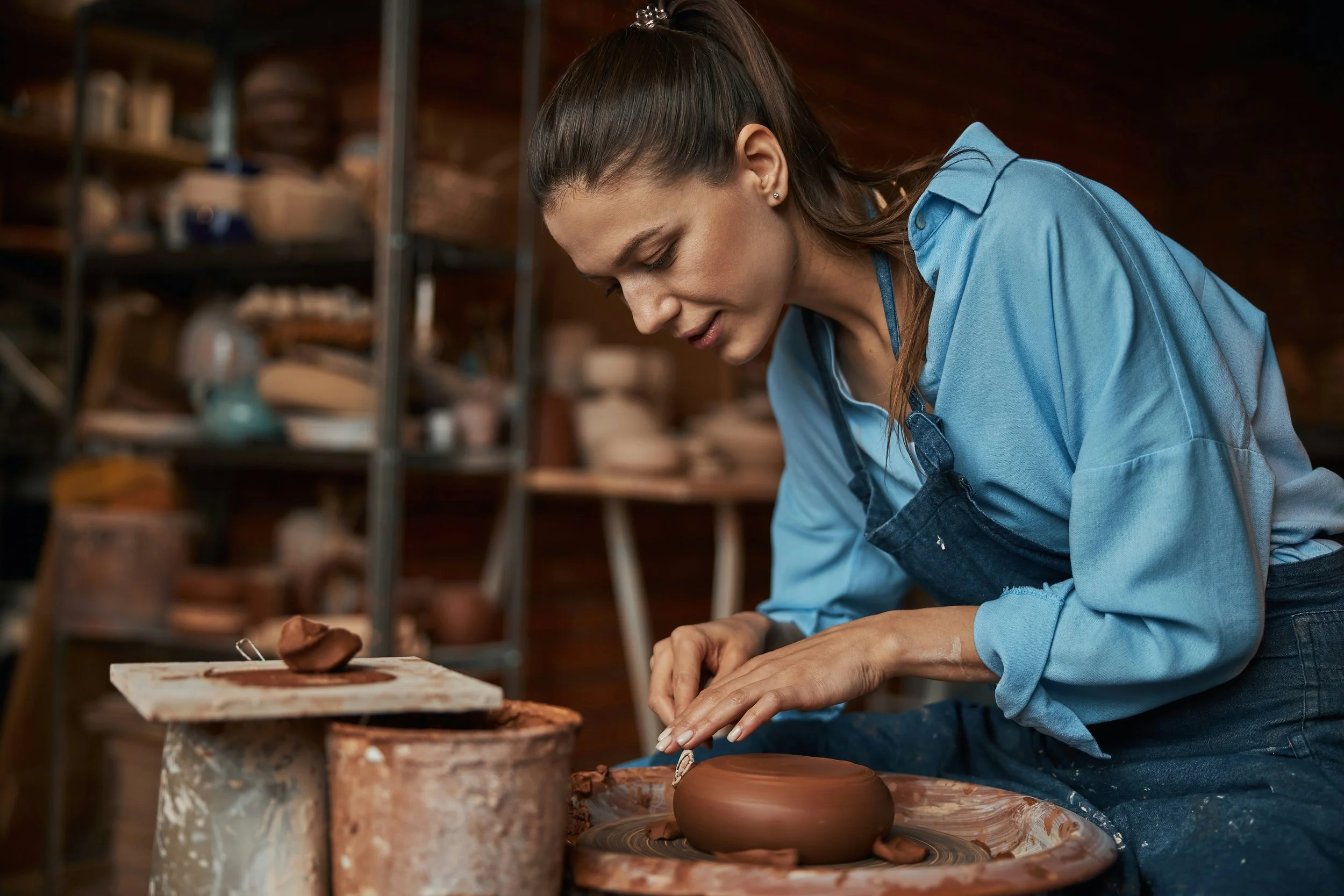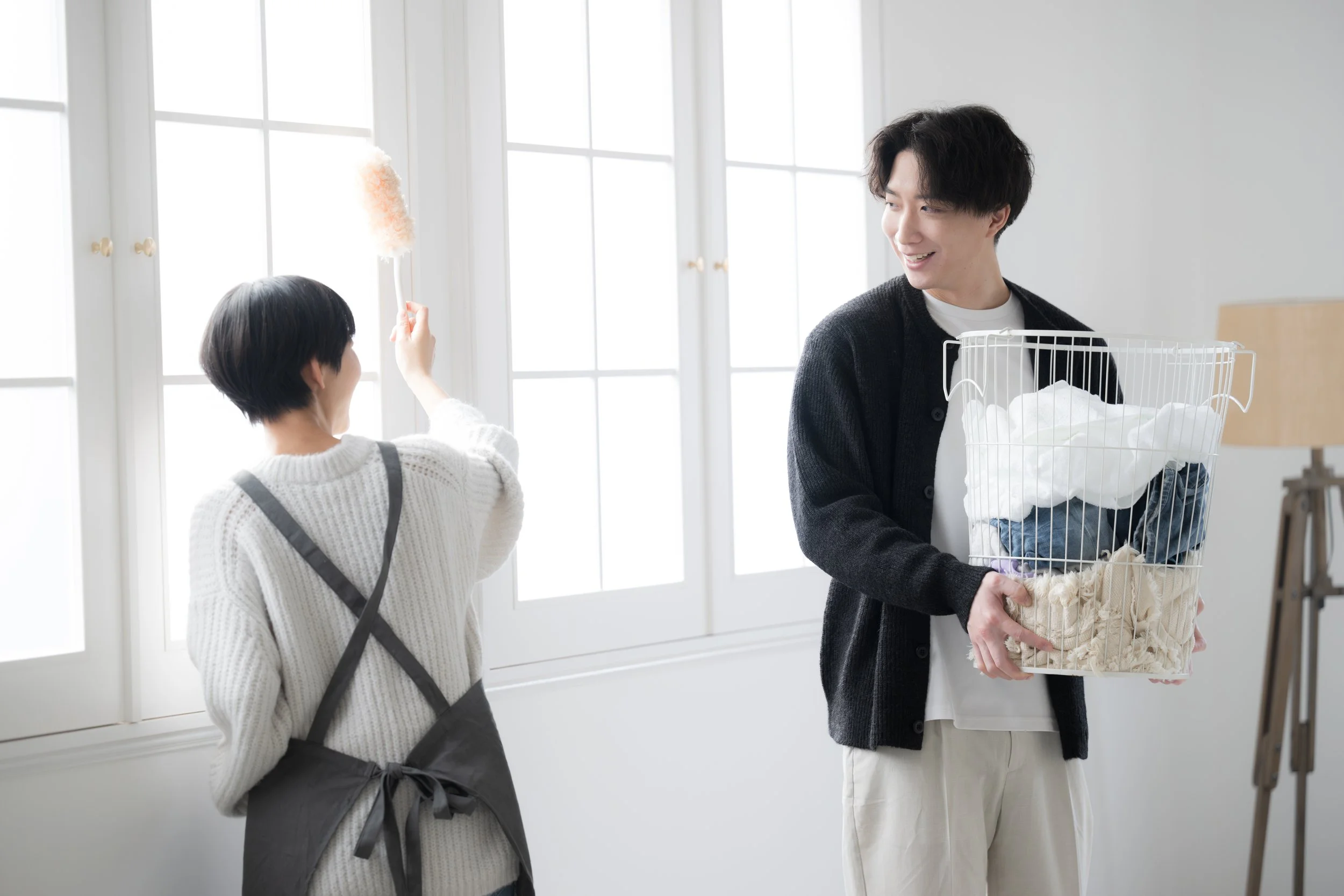THE IDENTIFIER
PEOPLE PLUS
ECONOMICAL DESIGN
Economical Design
How you relate to others.
Shared Values and Lifestyle in Relationships
Your approach to relationships is deeply rooted in shared values and lifestyle, reflecting a preference for stability and consistency in your social interactions. This conscientious attitude towards life management extends to every facet of your relationships, from the people you choose to associate with to the way you conduct yourself publicly and privately. Your possessions, status, and the company you keep are not merely superficial aspects of your life; they are integral to your identity and how you wish to be perceived, ensuring that your relationships are meaningful and deeply connected.
Commitment to Responsibility and Long-Term Security
You take the responsibilities of relationships seriously, recognizing that sustaining them requires more than just emotional connection—it demands a commitment to providing for and protecting those you care about. This protective nature is evident in how you manage your relationships, always with an eye toward preserving the welfare and status of your circle. Your relationships are not transient; they are investments of time and emotion that you believe should yield long-term security and satisfaction, making you a reliable and dedicated partner or friend.
Expanding and Enriching Your Social Circle
Additionally, your love for socializing at events where you can mingle reflects your desire to expand your network within the confines of your value system. You relish opportunities to meet new people who might share your principles and enhance your life with their presence. Gift-giving and storytelling are other ways you express your affection and share your life experiences, adding depth and texture to your interactions, while your commitment to staying informed about the lives of those you care about underscores your dedication to actively nurturing your relationships.
You love social events that allow you to get out and mingle with others.
You enjoy being thoughtful, and giving gifts to show your appreciation and love.
You are very focused on providing a future for those you care about.
You want to be kept in the light about what is going on in the lives of those you are close to.
You enjoy sharing what you have experienced in life through stories.
Economical Design
Meet the other Designs
Economical Design
-
People with this design excel at managing, accumulating, and distributing resources to meet both present and future needs. They are naturally meticulous, conservative, and resourceful, with a deep sense of responsibility toward financial stability, sustainability, and provision.
Economical Designs are driven by a desire to ensure that nothing essential is ever lacking—for themselves, their loved ones, and the systems they serve. They are long-term thinkers, grounded in practical decision-making and guided by the belief that wise stewardship today creates security tomorrow.
-
Perception: Partners in Practicality
Economical Designs often see others with the same design as kindred spirits—people who truly understand the value of planning ahead, preparing thoroughly, and preserving wisely. There is a mutual appreciation for practicality, restraint, and the discipline it takes to make things last.
They recognize in one another a shared intensity when it comes to managing time, money, and energy—an instinct to be careful, conscientious, and deeply aware of the long-term consequences of short-term decisions. To an Economical individual, another Economical feels trustworthy, diligent, and aligned—a collaborator who will always think ahead, never spend carelessly, and value preparation over impulse.
Critique: Rigid Over Reasoned
Even in strong alignment, Economical Designs may occasionally perceive each other as overly strict, excessively cautious, or resistant to change. While they value sustainability, they may also recognize a tendency in themselves and others to cling too tightly to what’s safe, at the expense of potential growth or needed evolution.
One Economical may wish another could balance preservation with investment, seeing that there are moments where risk is strategic and letting go unlocks opportunity. Without external input, they may unintentionally reinforce over-caution or missed chances.
They might find themselves wanting to say, “Yes, protect the resources—but let’s also use them well.”
Appreciation: Stewards of Security
Despite occasional tensions, Economical Designs hold deep appreciation for each other’s consistency, reliability, and foresight. They know that others with their design bring a level of stability and financial wisdom that keeps systems intact when others overspend, overextend, or underprepare.
They value each other’s gift for creating sustainable plans, honoring limits, and preserving resources that others may squander. Their presence is grounding, often bringing a calm, methodical approach that keeps environments functional and future-ready.
Together, aligned Economical Designs make an ideal match for building anything that requires longevity, thoughtful growth, and high levels of responsibility.
-
When Economical Designs are aligned, they create a powerful force for endurance, security, and wise provision. One is willing to invest wisely; the other ensures that nothing is wasted. One tracks the numbers; the other guards the vault. One sees opportunity; the other sees responsibility.
Together, they remind us that true resourcefulness is not just about having enough—it’s about managing wisely, planning intentionally, and knowing when to save, when to share, and when to sow.
Intuitive Design
-
People with the Intuitive Design are analytical, perceptive, and introspective, motivated by a desire to uncover truth, understand motives, and illuminate what lies beneath the surface. They are naturally drawn to the “why” behind human behavior, decisions, and circumstances, and they thrive in spaces where they can observe, reflect, and bring insight to what may otherwise go unnoticed.
Intuitive Designs seek clarity—not just in what is happening, but in what it means. Their strength lies in their ability to recognize patterns, reveal deeper truths, and guide others through transformation and growth. They are often quiet observers but powerful catalysts for change.
-
Perception: Grounded Guardians of Practical Wisdom
Intuitive Designs often see Economical individuals as grounded, pragmatic, and refreshingly concrete. They appreciate how Economicals focus on what’s real, measurable, and immediately useful—especially when Intuitives feel overwhelmed by abstraction or uncertainty. Economicals offer a kind of tangible security, anchoring decisions in facts, experience, and common sense.
To the Intuitive, the Economical Design embodies a kind of worldly wisdom—a person who can spot risks, manage limits, and act with restraint, even when emotions or ideals push in another direction.
Critique: Too Fixed or Resistant to Deeper Exploration
At times, Intuitives may feel that Economical Designs are too rigid, cautious, or close-minded. While Economicals focus on conserving what works, Intuitives often want to question why it works, or whether it should continue. This can create tension when the Intuitive seeks depth, nuance, or change, while the Economical prefers consistency, predictability, and what has proven reliable.
Intuitives may wish that Economicals were more willing to reflect, stretch, or explore unseen possibilities instead of always returning to what’s practical or already established.
Appreciation: Anchors in the Material World
Despite their differences, Intuitive Designs deeply respect the Economical’s ability to provide stability, clarity, and provision. They see them as people who help keep life grounded, ensuring that no one gets lost in ideas or emotions without attending to real-world needs.
Economicals help Intuitives slow down, prioritize wisely, and focus on what matters in the moment, often providing the practical reinforcement that makes deeper exploration possible in the first place.
-
Perception: Deep Thinkers and Quiet Truth-Seekers
Economical Designs often view Intuitive individuals as intelligent, perceptive, and uniquely insightful. They respect their ability to see hidden patterns, question motives, and detect what others miss. Intuitives bring a kind of clarity that isn’t rooted in data, but in discernment, and Economicals can admire how accurate their insights often prove to be—even when initially unclear.
They appreciate that Intuitives aren’t reckless—they’re thoughtful, observant, and motivated by truth, not flash. Economicals often see them as a needed counterpart to their own resource-driven logic.
Critique: Abstract, Indirect, or Impractical
However, Economical Designs may sometimes find Intuitive individuals too vague, slow-moving, or speculative. Where Economicals want clear answers and measurable plans, Intuitives often move in questions, impressions, and interpretations. This can feel inefficient or overly abstract to the more direct, action-focused Economical mindset.
They may wish Intuitives would get to the point sooner, or offer solutions with more practical steps and fewer philosophical undertones. In tense moments, Intuitives may come across as hesitant or evasive when Economicals are seeking quick, grounded clarity.
Appreciation: Subtle Wisdom and Honest Insight
Still, Economical Designs value the emotional and ethical intelligence that Intuitives bring. They may not always operate in the same tempo, but Economicals learn to trust that when the Intuitive speaks, there is usually something worth listening to. They bring a depth that helps Economicals reflect more intentionally and make wiser, more holistic decisions.
Economicals recognize that Intuitives don’t waste words, and when they speak, it’s often the exact thing that needs to be said—even if it wasn’t what anyone wanted to hear.
-
The relationship between Intuitive and Economical Designs is a dynamic of depth and discipline, discernment and practicality. Intuitives seek to understand the meaning behind the moment; Economicals work to protect the moment’s value. One seeks clarity of motive; the other ensures sustainability of action.
Together, they remind us that wisdom is most powerful when it is both discovered and applied—when we not only ask the right questions, but also know how to resource the answers wisely.
Enterprising Design
-
People with the Enterprising Design are strategic, driven, and results-oriented, motivated by the desire to set goals, take action, and achieve meaningful success. They thrive in environments where progress is visible, competition is welcomed, and forward movement is rewarded.
Enterprising individuals are natural planners and achievers. They tend to be energetic, confident, and focused on making measurable improvements—in their personal growth, work, teams, or broader impact. Their motivation comes from the challenge of progress itself, and they are constantly looking for ways to advance, optimize, and excel.
-
Perception: Cautious Strategists and Valuable Risk Managers
Enterprising Designs often view Economical individuals as wise, grounded partners who understand the importance of conserving resources and protecting long-term outcomes. They appreciate the Economical’s ability to analyze risk, think ahead, and avoid unnecessary waste, especially when it comes to finances, time, or energy.
To an Enterprising person, Economicals bring a much-needed tempering effect—someone who can rein in impulsive decisions, ask the right questions, and ensure that the strategy is sustainable. They respect the Economical’s ability to safeguard what’s been built while helping decide where best to invest next.
Critique: Overly Cautious or Slow to Move
That said, Enterprising Designs may sometimes feel frustrated by the Economical’s pace or apparent hesitancy. Where Enterprisings thrive on momentum, Economicals may prefer careful deliberation—which to the Enterprising mind can feel like resistance or inaction.
They may also perceive Economicals as being too focused on cost, too skeptical of risk, or unwilling to step outside their comfort zone. Enterprising types might wish their Economical counterparts would trust the vision, commit faster, and embrace growth even when it involves uncertainty.
Appreciation: Strategic Filters and Financial Anchors
Despite these critiques, Enterprising individuals genuinely appreciate how Economicals help them build not just fast, but smart. Economicals catch the hidden costs, protect the bottom line, and often prevent the Enterprising person from overextending or burning out.
Enterprisings respect Economicals as quiet strategists—those who might not always lead the charge but are essential for keeping the plan grounded and the vision viable.
-
Perception: Visionary Achievers with Drive and Direction
To Economical Designs, Enterprising individuals appear as ambitious, decisive, and energizing leaders. They are drawn to the Enterprising’s clarity of direction, willingness to take initiative, and their ability to create real results. Enterprisings seem to know where they’re going and how to get there—and Economicals admire their confidence and resourcefulness.
Enterprising Designs are seen as catalysts—people who bring movement, motivation, and tangible momentum to any situation. Economicals often feel inspired by the Enterprising’s sense of purpose and their belief that growth is both possible and worth pursuing.
Critique: Risk-Prone or Resource-Ignoring
However, Economical Designs may sometimes feel uneasy with the Enterprising’s appetite for risk. They may view them as being too fast, too willing to spend, or too focused on results over sustainability. Economicals, who prioritize protection and long-term security, may worry that Enterprisings sacrifice stability in the name of ambition.
They may wish Enterprising individuals would pause more often, consider potential losses, and build safeguards before sprinting ahead.
Appreciation: Purpose-Driven Partners
Still, Economicals appreciate the Enterprising Design’s ability to make things happen. They admire their persistence, bold thinking, and ability to turn ideas into action. Enterprising types bring courage, momentum, and vision—qualities that can balance the Economical’s caution and help them take healthy risks when the timing is right.
Economicals often feel more confident in taking action when an Enterprising Design is involved, knowing the direction is clear and the energy is there to follow through.
-
When Enterprising and Economical Designs work together, they form a highly complementary team. One brings vision, energy, and strategic drive; the other brings wisdom, restraint, and long-term stewardship. One says “Let’s go!” and the other asks, “Is it worth it?”
Together, they remind us that success isn’t just about ambition—it’s about sustaining what you’ve built. And that wise investment, whether of time, energy, or resources, requires both boldness and balance.
Industrious design
-
People with the Industrious Design are practical, dependable, and detail-oriented, motivated by the need to keep things working and support the well-being of others and their environment. They thrive in structured routines and stable systems, finding satisfaction in consistency, quality, and follow-through.
Their value lies in being the quiet, steady force that holds everything together—ensuring that responsibilities are handled, systems are maintained, and people are cared for. Industrious individuals find meaning in service, reliability, and task fulfillment, knowing that even small efforts make a big impact when done with integrity and care.
-
Perception: Thoughtful Providers and Strategic Planners
Industrious Designs often see Economical individuals as wise, measured, and deeply intentional. They admire their ability to manage resources with care, always ensuring that supplies, time, and money are used in a way that supports longevity and sustainability. To the Industrious mind, Economicals are planners and protectors, securing what’s needed so that the day-to-day can continue without interruption.
They view them as solid, trustworthy partners, especially when it comes to long-term goals or maintaining the basic necessities of life and work. Economicals provide the infrastructure of provision, which allows the Industrious to carry out their support roles with confidence and focus.
Critique: Overly Cautious or Resistant to Change
At times, Industrious Designs may find Economical individuals too focused on control or too rigid with resources. They may feel frustrated by delays, over-analysis, or what seems like an overemphasis on saving rather than acting. Industrious types are doers—they want to get things done, and may feel that Economicals hold back progress in the name of safety or thrift.
They may wish for a bit more fluidity, responsiveness, or emotional availability, especially when the needs of people outweigh the need to protect material assets.
Appreciation: Partners in Stability and Provision
Still, Industrious Designs genuinely appreciate that Economical types share their deep commitment to security and dependability. They see them as excellent planners and providers—guardians of the future, whose caution and foresight help prevent crises and support the systems that Industrious types work to maintain.
Together, they create a natural flow: the Economical ensures the resources are there, and the Industrious puts them to work.
-
Perception: Faithful Executors and Steady Operators
To Economical Designs, Industrious individuals are the hands that turn planning into progress. They see them as dedicated, trustworthy, and unwavering in their responsibility, always focused on what needs to be done and committed to doing it right. Economicals admire how Industrious types are willing to handle the repetitive, thankless, or routine tasks that keep everything functional.
They are seen as essential partners in getting things off the ground and keeping them moving, often becoming the stabilizing presence in families, teams, or workplaces.
Critique: Too Routine-Bound or Lacking Strategic Perspective
Economical Designs may sometimes feel that Industrious individuals focus too much on the process without questioning its long-term value. They may view them as too loyal to routine, or overly willing to do the work without evaluating whether the work is truly necessary or efficient.
Economicals, who are always weighing cost, return, and future value, may wish that Industrious types would pause to consider whether the effort is worth the outcome.
Appreciation: The Reliable Backbone of Operation
Despite this critique, Economical Designs deeply respect the Industrious Design’s loyalty, diligence, and quiet strength. They appreciate how Industrious individuals bring order and dependability to even the most chaotic circumstances, providing daily consistency that helps Economicals implement their strategic plans.
Industrious types are the ones who take ideas and make them real, ensuring that sustainability isn't just a concept—it's something lived out through care, attention, and responsibility.
-
The pairing of Economical and Industrious Designs is a powerful alliance of stewardship and service. Economicals preserve the means, Industrious individuals deliver the effort. One ensures that the provisions are there; the other makes sure they’re used effectively.
Together, they are the backbone of sustainable success—protecting what matters and making it work day in and day out. This relationship reminds us that real progress isn’t loud or flashy—it’s steady, thoughtful, and built on mutual respect for reliability and responsibility.
Synergistic Design
-
People with the Synergistic Design are organized, relationally strategic, and visionary, driven by a desire to create harmony and cohesion across people, systems, and goals. They excel at aligning others, managing complexity, and ensuring that all the moving parts of a group or project work together as a unified whole.
Synergistic individuals are natural coordinators and system-builders. They think in terms of how things fit together, how people complement one another, and how to create mutual progress without sacrificing connection. Their motivation comes from wanting to build purposeful environments where individuals and structures flourish—together.
-
Perception: Grounded Stabilizers and Resource-Conscious Contributors
Synergistic Designs often see Economical individuals as practical, reliable, and refreshingly clear-cut in how they approach decisions and manage priorities. They admire how Economicals bring clarity to resource use, ensuring that plans are backed by realistic provisions and that actions are sustainable and grounded.
Synergistics value how Economicals help reinforce systems with resource efficiency and keep team efforts from becoming overextended. In Economicals, they see guardians of stability—those who may not seek the spotlight, but who are essential to making plans functional and lasting.
Critique: Risk-Averse or Resistant to Vision
However, Synergistic individuals may occasionally feel that Economicals are overly cautious, narrowly focused, or unwilling to expand a system's potential. While Synergistics often aim to grow impact or build better collaborative models, Economicals may resist those changes due to budget concerns, risk aversion, or preference for what's already working.
Synergistics may wish Economicals would be more open to future-oriented thinking, willing to invest in ideas that bring long-term value to the whole, even if there’s a short-term cost or some uncertainty involved.
Appreciation: Essential Partners in Sustainable Planning
Still, Synergistic Designs deeply appreciate how Economicals strengthen the foundations of systems. They value their methodical decision-making, ability to spot unsustainable patterns, and talent for keeping things running efficiently behind the scenes.
Economicals help Synergistics turn ideas into action without waste, reminding them that good systems are not just beautiful or functional—they are responsibly built and resource-conscious.
-
Perception: Visionary Organizers and Unifying Leaders
To Economical Designs, Synergistic individuals appear as big-picture thinkers with an eye for structure and group success. They respect the Synergistic’s ability to coordinate people, manage complexity, and bring relational and operational order to chaos.
Economicals often admire how Synergistics keep everyone aligned, making sure resources aren’t just preserved, but strategically directed toward shared goals. They see Synergistics as natural leaders—those who can elevate systems and teams with foresight and integrity.
Critique: Over-Structured or Idealistic
However, Economical Designs may sometimes view Synergistics as too idealistic, too process-heavy, or overly focused on vision rather than practical execution. To an Economical, who thrives on pragmatic decision-making, the Synergistic’s tendency to involve multiple voices or pursue long-range, complex visions can feel like a drain on time, energy, or financial resources.
They may wish Synergistics would streamline plans, focus on concrete steps, and prioritize practical outcomes over aesthetic or organizational elegance.
Appreciation: Architects of Collaboration and Order
Despite occasional tension, Economicals recognize the tremendous value Synergistic Designs bring to any system or team. They appreciate their gift for unifying people and processes, and for building structures that bring out the best in everyone involved.
Synergistics help Economicals look beyond the numbers and see the people and systems behind the resources, ensuring that preservation and efficiency serve greater human and communal outcomes.
-
When Synergistic and Economical Designs work together, they form a powerful balance of vision and conservation, structure and sustainability. One builds systems to elevate collaboration and progress; the other ensures those systems are realistically resourced and responsibly maintained.
Together, they remind us that the best structures are both visionary and viable—and that a truly successful system is not just beautiful or efficient, but also enduring, well-resourced, and thoughtfully led.
Conceptual Design
-
People with the Conceptual Design are curious, logical, and thoughtful, driven by a desire to understand the underlying principles that govern the world around them. They are natural observers and theorists, fascinated by ideas, systems, and the “how” behind anything they encounter.
Conceptual individuals are motivated by the process of exploration, discovery, and intellectual development. They enjoy asking questions, making connections, and finding better ways of doing things. Their gift is not just in gathering knowledge, but in creating new frameworks and possibilities that improve how things work and evolve.
-
Perception: Guardians of Practicality
Conceptual Designs often view Economical individuals as practical, stable, and strategically cautious. They admire their ability to manage resources wisely, think long-term, and avoid impulsive decisions. To a Conceptual, who often lives in the world of theory and ideas, the Economical Design offers a grounded, real-world anchor—someone who doesn’t just consider what could be, but what should be, based on measurable outcomes and tangible needs.
There is respect for how Economicals preserve order, maintain discipline, and uphold proven systems that support continuity and prevent loss.
Critique: Resistant to Innovation
That said, Conceptuals may at times feel stifled by the Economical’s conservatism. They may perceive them as too risk-averse, too attached to tradition, or hesitant to explore new methods simply because they haven’t yet been proven. Where Conceptuals want to test ideas and improve systems, Economicals may want to protect what already works.
This difference can lead to frustration when Conceptuals feel their innovations are dismissed too quickly, or when they sense that deeper thinking is being overridden by short-term caution or cost-based objections.
Appreciation: Strategic Filters for Real-World Application
Still, Conceptuals deeply value the role Economicals play in ensuring that ideas can be implemented effectively. They see them as important counterparts—the ones who ground lofty vision in workable form. Economicals provide a check and balance, helping Conceptuals refine their ideas and test whether they can actually deliver sustainable results.
With a little patience, Conceptuals often find that the Economical’s pragmatism helps sharpen their thinking and makes their insights stronger, clearer, and more applicable.
-
Perception: Strategic Thinkers with Big Ideas
To Economical Designs, Conceptual individuals appear as deep thinkers and patient analysts—people who love to dig beneath the surface and explore better ways of approaching problems. They appreciate how Conceptuals ask smart questions, identify patterns, and push toward clarity before rushing into action.
Economicals see Conceptuals as a valuable source of intellectual insight, especially when the need arises to understand a process, improve a system, or evaluate a complex issue.
Critique: Overly Theoretical or Impractical
However, Economical Designs may sometimes feel that Conceptuals are too focused on theory, too slow to act, or lacking real-world application. While Economicals are action- and results-oriented, Conceptuals may appear to linger in the realm of possibilities or delay implementation while waiting for “just the right” answer.
They may grow frustrated if a Conceptual refuses to move forward without perfect conditions, or if a proposed idea seems too expensive, too complicated, or too idealistic to be realistically useful.
Appreciation: Developers of Better Systems
Despite occasional friction, Economical Designs appreciate how Conceptuals improve the systems they care so deeply about preserving. They see them as long-term problem-solvers, people who aren’t afraid to reimagine or upgrade what no longer works—even if it’s been useful in the past.
They admire the Conceptual’s discipline of thought and patience in discovery, recognizing that when paired with practicality, new systems can emerge that are both innovative and sustainable.
-
When Conceptual and Economical Designs work together, they form a compelling partnership of innovation and restraint, vision and preservation. One pushes boundaries; the other reinforces what’s essential. One dreams up better ways; the other ensures those dreams are worth the cost.
Together, they remind us that ideas need grounding and resources need purpose—and that the best systems are born from both thoughtful exploration and wise management.
Experiential Design
-
People with the Experiential Design are free-spirited, emotionally expressive, and creatively driven, motivated by the pursuit of joy, beauty, connection, and fulfillment. They are highly attuned to the emotional energy of a moment and are passionate about creating meaningful and memorable experiences—for themselves and others.
Experiential individuals live by the belief that happiness and presence aren’t luxuries—they’re essential. They gravitate toward activities, environments, and relationships that foster peace, spontaneity, and self-expression. Their motivation is to enrich life through what is emotionally satisfying, personally meaningful, and often creatively inspired.
-
Perception: Grounded, Sensible, and Reliable
Experiential Designs often view Economical individuals as grounded, thoughtful, and good at knowing what truly matters in practical terms. They admire the Economical’s ability to make wise decisions, manage their lives and resources with care, and remain steady—even when others are driven by emotions or trends.
To an Experiential person, Economicals offer a sense of security and calm logic, helping to anchor the more emotional and spontaneous nature of the Experiential mindset. They appreciate how Economicals help ensure long-term sustainability, which often supports the kind of lifestyle Experientials desire.
Critique: Overly Restrained or Emotionally Guarded
That said, Experiential Designs may sometimes feel that Economical individuals are too cautious, too closed off emotionally, or too focused on practicality at the expense of enjoyment. They might perceive Economicals as overly frugal or limited in their willingness to explore new or exciting experiences—especially if there's no obvious return on investment.
Experientials may wish Economicals would loosen up, let go, and enjoy the moment more often, even if it means deviating from the plan or spending a little more than planned.
Appreciation: Anchors of Stability and Sensibility
Despite their differences, Experientials deeply value how Economicals provide balance and thoughtful restraint. They respect their ability to manage details, anticipate future needs, and prevent unnecessary waste, helping the Experiential avoid burnout or overextension.
Economicals often help Experientials slow down and make more sustainable decisions, reminding them that joy and responsibility can coexist when approached with intention.
-
Perception: Emotionally Vibrant and Creatively Free
To Economical Designs, Experiential individuals appear colorful, emotionally attuned, and relationally generous. They see them as people who know how to bring lightness into a room, who can make even simple moments feel special and alive. Economicals often admire how Experientials prioritize happiness, harmony, and connection—things the Economical may value but not always prioritize themselves.
Experientials offer a refreshing contrast to the Economical’s restraint, often serving as a gentle reminder that life is not only about preserving—but also about enjoying.
Critique: Impulsive, Unfocused, or Indulgent
At times, Economical Designs may feel that Experiential individuals are too driven by emotion, too quick to make decisions based on desire, or too dismissive of consequences. Their tendency to prioritize feeling over function can make Economicals uneasy, especially if resources are at stake or if the Experiential disregards structure or long-term planning.
Economicals may wish Experientials were more consistent, responsible, or measured—thinking before leaping, especially when emotions are high.
Appreciation: Creators of Joy and Relational Wealth
Still, Economical Designs appreciate that Experientials bring something into life that money can't buy: emotional connection, beauty, and presence. They value their ability to create meaningful experiences, foster joy, and nurture relationships with authenticity and creativity.
Experientials soften the Economical edge, inviting them to enjoy what they’ve worked so hard to protect. Together, they often find a natural rhythm—one provides the frame, the other fills it with color.
-
The relationship between Experiential and Economical Designs is one of contrast and complement. One seeks beauty and presence; the other seeks prudence and preservation. One spends for the moment; the other saves for the future.
Together, they remind us that life is both a treasure to protect and a joy to embrace—and that real fulfillment comes when we balance feeling with foresight, freedom with wisdom, and expression with stewardship.
Economical Design
How you see yourself.
You tend to see yourself as practical, prudent, and responsible when it comes to managing resources, reflecting a strong resource drive. You value efficiency, careful planning, and the effective use of both material and non-material assets. Here’s how you generally perceive yourself:
-
You view yourself as a practical individual who prioritizes functionality and utility. You pride yourself on focusing on what is necessary and beneficial, often opting for practical solutions over theoretical or speculative ones.
-
You see yourself as responsible and reliable, especially in managing resources. You take pride in your ability to manage finances, time, and other assets efficiently, ensuring that nothing is wasted.
-
You often consider yourself conservative, preferring to take calculated risks rather than jumping into uncertain ventures. You value security and stability, particularly in financial matters, and are cautious about making decisions that could lead to unnecessary loss or waste.
-
You perceive yourself as efficient and organized, adept at planning and structuring your activities to maximize outcomes while minimizing waste. You’re detail-oriented, making sure that all aspects of a plan are well thought out and executed.
-
You see yourself as thrifty and resourceful, skilled at finding ways to save money and make the most of available resources. You take pride in your ability to stretch resources and find cost-effective solutions to problems.
-
You view yourself as a strategic thinker who prioritizes long-term benefits over short-term gains. You’re often focused on sustainability and future planning, ensuring that resources are preserved and used wisely for ongoing benefit.
-
You perceive yourself as courteous and considerate, especially in handling shared resources. You value fairness and equity, ensuring that resources are distributed and used in a way that benefits all stakeholders.
-
You tend to see yourself as modest and humble, not prone to extravagance or showiness. You often value simplicity and prefer to live within your means, avoiding unnecessary luxuries.
In summary, you see yourself as practical, efficient, and responsible, skilled in managing resources wisely. You value stability, careful planning, and long-term sustainability, often taking a cautious and thoughtful approach to decision-making. Your self-image is closely tied to your ability to be a prudent steward of resources, ensuring that nothing is wasted and everything is used effectively.
Economical Design
How you see others.
If you have an economical design driven by a strong resource focus, you likely see others through the lens of their practicality, responsibility, and ability to manage resources effectively. Here’s how you might typically perceive others:
-
You tend to appreciate people who are practical and focused on what is necessary and beneficial. You value those who prioritize functionality and make decisions based on real-world considerations rather than abstract ideas or theories.
-
You admire individuals who are responsible and reliable, especially when it comes to managing resources. You respect people who are dependable, who plan carefully, and who can be trusted to handle their finances, time, and other assets wisely.
-
You tend to see value in those who are cautious and thoughtful in their decision-making. You appreciate people who take calculated risks and prefer security and stability, particularly in financial matters.
-
You respect others who are efficient and organized, particularly those who can plan and execute tasks with minimal waste. You admire individuals who are detail-oriented and can maximize outcomes with the resources they have.
-
You are likely drawn to people who are thrifty and resourceful, those who can find creative ways to save money and make the most of what they have. You value individuals who can stretch resources and find cost-effective solutions to problems.
-
You appreciate those who think strategically about the long-term, prioritizing sustainable practices over short-term gains. You respect people who plan for the future and ensure that resources are preserved and used wisely over time.
-
You tend to see others positively when they are fair and considerate, especially in how they handle shared resources. You value those who distribute resources equitably and think about the well-being of all stakeholders.
-
You often admire people who are modest and humble, those who avoid extravagance and live within their means. You respect individuals who value simplicity and prefer a more understated approach to life.
Overall, you see others in terms of their practicality, responsibility, and resourcefulness. You value those who are efficient, cautious, and strategic in their use of resources, often gravitating toward individuals who share your focus on careful planning, sustainability, and prudent decision-making.
Economical Design
How others see you.
Others often see you as practical, reliable, and resource-conscious, consistently making thoughtful decisions that prioritize efficiency and long-term success. Your approach to managing resources is admired for its careful planning and attention to detail. This perception reflects your ability to navigate challenges with a steady and methodical mindset, earning the trust and respect of those around you.
-
People generally see you as down-to-earth and practical. They appreciate your focus on realistic solutions and your ability to prioritize what’s essential over frivolous considerations.
-
You’re perceived as highly responsible and dependable, especially when it comes to managing resources like finances, time, and materials. Others often trust you to handle important tasks and decisions with care and diligence.
-
People often view you as conservative and cautious, particularly in financial matters or decision-making. While this cautiousness is generally respected, it can sometimes be seen as overly risk-averse.
-
Others see you as efficient and organized, recognizing your ability to plan meticulously and avoid waste. Your attention to detail and systematic approach are valued, especially in environments that require careful management.
-
You’re often seen as thrifty and resourceful, admired for your ability to find cost-effective solutions and make the most out of limited resources. People appreciate your knack for budgeting and saving.
-
You are respected for your strategic thinking and focus on long-term outcomes. Others often see you as a planner who considers the future implications of current decisions, which can be particularly reassuring in uncertain situations.
-
People view you as fair and equitable, especially in how you manage and distribute resources. They appreciate your consideration for fairness and your tendency to ensure that everyone gets what they need without waste or excess.
-
Others often see you as modest and humble, valuing your lack of pretentiousness and preference for simplicity. You’re generally not seen as showy or extravagant, which makes you approachable and relatable.
-
While your cautious nature is usually seen as a strength, some may perceive you as too risk-averse or conservative. This can lead to a perception that you’re unwilling to embrace new opportunities or innovations.
-
People may sometimes see you as predictable and preferring routine. While this can be reassuring in terms of reliability, it might also be perceived as a reluctance to adapt to change or try new approaches.
In summary, others generally see you as practical, reliable, and efficient. You’re respected for your careful management of resources and long-term strategic thinking. However, your conservative and cautious nature can sometimes be viewed as overly risk-averse or inflexible, depending on the context and the observer's own priorities and values.
Economical Design
How you interact with others.
For those with an Economical motivational design rooted in Resource, their approach to relationships, communication, trust, and conflict is driven by a focus on efficiency, practicality, and the careful management of resources. Here’s how someone with an Economical-Resource design might respond to the given questions:
What is your personality?
Your personality is practical, cautious, and resourceful. You’re highly organized and enjoy managing resources efficiently, whether it’s time, money, or materials. You take a methodical approach to life and prefer to make well-considered decisions. You value security and prefer to plan ahead to ensure everything is accounted for.
How do you think people see your personality?
People likely see you as reliable, sensible, and financially savvy. They might describe you as someone who is good at planning and managing resources, and who can be counted on to make prudent decisions. Some may view you as conservative or overly cautious, but those who know you well appreciate your ability to provide stability and ensure that things run smoothly.
-
You communicate in a clear, straightforward manner, often focusing on the practical aspects of a situation. Your communication style is concise, and you prefer to discuss things that are relevant and necessary. When you listen, you pay close attention to the details, particularly when it involves decisions that could impact resource management.
-
You are a focused listener, especially when it comes to understanding how decisions will affect long-term outcomes. You may ask questions to clarify specifics and ensure that all aspects have been considered.
-
You communicate when there is a need to plan, allocate resources, or discuss practical solutions to problems. You’re also motivated to communicate when you see an opportunity to optimize efficiency or prevent waste. Your communication is usually goal-oriented, with an emphasis on ensuring that everything is well-organized and accounted for.
-
You connect with others through shared values of efficiency, practicality, and responsibility. You build relationships by offering your skills in planning and resource management, and by being a reliable person others can count on in times of need. You value connections that are grounded in mutual respect for careful decision-making and long-term thinking.
-
You decide who to trust based on their reliability, financial responsibility, and ability to make sound decisions. Trust is built through consistent, sensible behavior and by demonstrating a commitment to managing resources wisely. You trust those who show that they can be dependable stewards of what is valuable.
-
A breach of trust occurs when someone is wasteful, irresponsible, or careless with resources. You also lose trust when someone makes impulsive decisions that jeopardize financial or material security. Dishonesty, particularly in matters related to finances or resource allocation, is a significant breach for you.
-
It hurts you when your efforts to be prudent and responsible are ignored or undervalued. You also feel hurt when others are careless with resources or fail to appreciate the importance of planning and saving for the future. Being forced into situations where you must act impulsively or without sufficient information can also be distressing.
-
When you’re hurt, you tend to withdraw and focus on re-evaluating the situation. You might become more guarded with your resources and less willing to take risks. You usually cope by doubling down on your planning and making sure that you are even more careful in the future. You might also distance yourself from those who have caused the hurt until you feel secure again.
-
When you’re wrong, you apologize by acknowledging your mistake and outlining the steps you will take to rectify it. You believe in making amends by ensuring that the issue is fully resolved and that it won’t happen again. Your apologies are practical and solution-focused, often involving a commitment to more careful planning in the future.
-
A good apology is one that acknowledges the mistake, offers a concrete plan for making things right, and demonstrates a commitment to preventing similar issues in the future. You value apologies that are sincere and accompanied by actions that show a genuine effort to rectify the situation and safeguard against future errors.
Summary:
Those with an Economical-Resource design are focused on efficiency, practicality, and careful management of resources. They communicate to ensure that things are done efficiently and responsibly, and they build trust based on reliability and sound decision-making. Breaches of trust often involve carelessness with resources or impulsive decisions that threaten security. Their approach to conflict and communication is practical and solution-oriented, emphasizing responsibility and long-term planning. Apologies are valued when they include a clear commitment to rectifying the situation and safeguarding against future issues.
Economical Design
Friendships
For you, with an Economical Design (Resource), friendship is a practical and mutually beneficial relationship that revolves around resourcefulness, reliability, and shared support. You approach friendships with a focus on the tangible aspects of life, seeing them as a network of trusted individuals who can provide and receive valuable resources, whether those are financial insights, time management strategies, or other essential tools for navigating life. Friendship, for you, is not just about emotional connection but also about creating a stable and supportive community where everyone helps each other thrive.
-
You view friendship as a practical alliance where both parties contribute to each other’s well-being in meaningful, tangible ways. You appreciate friendships where there is a clear exchange of resources, whether that’s advice, skills, or support during challenging times. For you, the value of a friendship is often measured by how both individuals can help each other manage life’s necessities and achieve long-term stability. You see your friendships as essential partnerships that enhance your ability to navigate the complexities of life with greater efficiency and security.
Providing Sound Advice and Practical Support
One of the key roles you play in your friendships is that of a trusted advisor. You are the friend who provides sound, practical advice on matters such as financial management, time optimization, and efficient problem-solving. You enjoy offering your insights to help your friends make informed decisions that will benefit them in the long run. Whether it’s budgeting, planning for the future, or finding cost-effective solutions, you take pride in being the reliable source of wisdom that your friends can turn to when they need practical guidance.
Building a Network of Trust
For you, friendship is about building a network of trusted individuals who can rely on each other in times of need. You value relationships where trust is paramount, and where both you and your friends can count on one another to follow through on commitments. This network of trust is not just about emotional support; it’s about creating a dependable group of people who can provide concrete help and resources when necessary. You appreciate friends who are reliable, who respect your time and efforts, and who contribute to the collective well-being of the group.
Focusing on Mutual Benefit
In your friendships, you emphasize the importance of mutual benefit. You believe that a strong friendship is one where both parties gain something valuable from the relationship, whether it’s advice, support, or shared resources. You are naturally inclined to think about how you can contribute to your friends’ lives and expect that they will do the same for you. This focus on reciprocity helps ensure that your friendships are balanced, fair, and sustainable over the long term.
Managing Resources Together
You often take an active role in helping your friends manage their resources, whether it’s time, money, or other essentials. You enjoy collaborating with friends on projects that require careful planning and resource management, such as organizing events, managing budgets, or tackling major life decisions. Your practical approach to friendship means that you are always looking for ways to make things more efficient and effective, both for yourself and for your friends. This resourcefulness is one of the key strengths you bring to your relationships.
Balancing Practicality with Emotional Support
While you are focused on the practical aspects of friendship, you also understand the importance of emotional support. You value friendships where there is a balance between providing practical help and being emotionally available for each other. You appreciate friends who are not only reliable and resourceful but who also understand the emotional nuances of your relationship. This balance allows you to build friendships that are both supportive and grounded in real-world needs.
Creating Stability and Security
Stability and security are central to how you approach friendship. You seek to create relationships that contribute to a sense of order and reliability in your life. You are likely to surround yourself with friends who share your values of responsibility and foresight, and who are committed to building a secure future together. By fostering stable and dependable friendships, you ensure that you have a solid support system that can weather life’s uncertainties.
Encouraging Financial Responsibility
In your friendships, you often encourage financial responsibility and wise management of resources. You value friends who are mindful of their spending, who plan for the future, and who appreciate the importance of saving and investing. You enjoy sharing financial tips, discussing long-term planning, and supporting each other in making decisions that lead to financial stability. This shared focus on financial responsibility helps to strengthen your friendships and align your goals with those of your friends.
Valuing Efficiency and Organization
Efficiency and organization are important to you in your friendships. You appreciate friends who are well-organized, who respect deadlines and commitments, and who value time management as much as you do. Whether it’s planning a trip, organizing a group project, or simply coordinating schedules, you value friendships where everything runs smoothly and where there is a shared commitment to making the most of your time and resources.
-
One of the key roles you play in your friendships is that of a trusted advisor. You are the friend who provides sound, practical advice on matters such as financial management, time optimization, and efficient problem-solving. You enjoy offering your insights to help your friends make informed decisions that will benefit them in the long run. Whether it’s budgeting, planning for the future, or finding cost-effective solutions, you take pride in being the reliable source of wisdom that your friends can turn to when they need practical guidance.
-
For you, friendship is about building a network of trusted individuals who can rely on each other in times of need. You value relationships where trust is paramount, and where both you and your friends can count on one another to follow through on commitments. This network of trust is not just about emotional support; it’s about creating a dependable group of people who can provide concrete help and resources when necessary. You appreciate friends who are reliable, who respect your time and efforts, and who contribute to the collective well-being of the group.
-
In your friendships, you emphasize the importance of mutual benefit. You believe that a strong friendship is one where both parties gain something valuable from the relationship, whether it’s advice, support, or shared resources. You are naturally inclined to think about how you can contribute to your friends’ lives and expect that they will do the same for you. This focus on reciprocity helps ensure that your friendships are balanced, fair, and sustainable over the long term.
-
You often take an active role in helping your friends manage their resources, whether it’s time, money, or other essentials. You enjoy collaborating with friends on projects that require careful planning and resource management, such as organizing events, managing budgets, or tackling major life decisions. Your practical approach to friendship means that you are always looking for ways to make things more efficient and effective, both for yourself and for your friends. This resourcefulness is one of the key strengths you bring to your relationships.
-
While you are focused on the practical aspects of friendship, you also understand the importance of emotional support. You value friendships where there is a balance between providing practical help and being emotionally available for each other. You appreciate friends who are not only reliable and resourceful but who also understand the emotional nuances of your relationship. This balance allows you to build friendships that are both supportive and grounded in real-world needs.
-
Stability and security are central to how you approach friendship. You seek to create relationships that contribute to a sense of order and reliability in your life. You are likely to surround yourself with friends who share your values of responsibility and foresight, and who are committed to building a secure future together. By fostering stable and dependable friendships, you ensure that you have a solid support system that can weather life’s uncertainties.
-
In your friendships, you often encourage financial responsibility and wise management of resources. You value friends who are mindful of their spending, who plan for the future, and who appreciate the importance of saving and investing. You enjoy sharing financial tips, discussing long-term planning, and supporting each other in making decisions that lead to financial stability. This shared focus on financial responsibility helps to strengthen your friendships and align your goals with those of your friends.
-
Efficiency and organization are important to you in your friendships. You appreciate friends who are well-organized, who respect deadlines and commitments, and who value time management as much as you do. Whether it’s planning a trip, organizing a group project, or simply coordinating schedules, you value friendships where everything runs smoothly and where there is a shared commitment to making the most of your time and resources.
Summary
For you, with an Economical Design (Resource), friendship is about building a network of trusted individuals who support each other in practical, meaningful ways. You approach your friendships with a focus on mutual benefit, resource management, and creating stability. By providing sound advice, practical support, and a reliable presence, you help to ensure that both you and your friends can navigate life’s challenges with greater ease and confidence. Friendship, for you, is a valuable partnership where both parties contribute to each other’s success and well-being, creating a balanced and supportive community that thrives on shared resources and mutual trust.
Here are 10 things you tend to value in a friendship:
-
You deeply value friends who are reliable and trustworthy. You appreciate knowing that you can count on your friends to follow through on their commitments and to be there when needed. Trust is the foundation of your friendships, and you value relationships where both parties are dependable and loyal.
-
Practical support and advice are important to you in a friendship. You appreciate friends who can offer sound, realistic advice on managing life’s challenges, whether it’s related to finances, time management, or other practical matters. You enjoy friendships where you can both give and receive helpful guidance that makes life easier and more efficient.
-
You value friendships that are mutually beneficial, where both parties contribute to each other’s well-being. You appreciate relationships where there is a fair exchange of resources, support, and assistance, ensuring that both you and your friends gain something valuable from the relationship.
-
You value friends who share your sense of responsibility and who are thoughtful planners. You appreciate relationships where both of you are focused on long-term stability and security, and where there is a shared commitment to managing resources wisely and planning for the future.
-
Financial responsibility and stability are key values in your friendships. You appreciate friends who are mindful of their finances, who save and invest wisely, and who respect the importance of financial security. You enjoy discussing financial strategies and supporting each other in making decisions that lead to a stable and secure future.
-
You value efficiency and organization in your friendships. You appreciate friends who are well-organized, who plan ahead, and who respect schedules and commitments. Whether it’s coordinating plans or managing joint projects, you value friendships where everything runs smoothly and efficiently.
-
Consistency and stability are important to you in a friendship. You appreciate relationships that are steady and predictable, where you know what to expect and can rely on your friends to be consistent in their actions and attitudes. This stability gives you a sense of security in your friendships.
-
You value friends who are resourceful and who can help solve problems in practical ways. You appreciate friendships where both of you can work together to find solutions, manage challenges, and make the best use of available resources. You enjoy collaborating with friends to overcome obstacles and achieve common goals.
-
Respect for boundaries and personal space is important to you. You value friends who understand your need for independence and who respect your time and space. You appreciate friendships where both parties can balance closeness with the freedom to pursue their own interests and maintain their personal routines.
-
value friendships that are built with a long-term perspective in mind. You appreciate relationships where both you and your friends are committed to growing and evolving together over time, with a focus on sustaining the friendship through various life stages. You seek friends who are in it for the long haul, with a shared vision for the future.
These values highlight your preference for friendships that are stable, efficient, and grounded in mutual respect and long-term planning. You seek relationships where both you and your friends are committed to making the most of your resources, solving problems together, and building a lasting, supportive connection.
Economical Design
Romantic Relationships
For individuals with an Economical Design rooted in Resource, romance is approached with a strong sense of practicality, security, and long-term planning. They see a romantic relationship not just as an emotional connection but as a partnership that requires careful management and stewardship of both tangible and intangible resources. Their primary focus is on building a relationship that is secure, sustainable, and capable of weathering life’s challenges.
-
For those with an Economical Design, romance is viewed as a strategic investment where both partners contribute to the long-term stability and success of the relationship. They approach love with the mindset of ensuring that the relationship is built on a solid foundation—one that includes financial security, emotional stability, and well-planned future goals. Just as they would with any other important aspect of life, they are meticulous and deliberate in their romantic endeavors, seeking to minimize risks and maximize the potential for a lasting, fulfilling partnership.
-
Financial security is a key component of romance for individuals with an Economical Design. They are likely to prioritize financial planning within the relationship, ensuring that both partners are on the same page regarding budgets, savings, and future financial goals. Whether it’s setting up a joint savings account, discussing long-term investments, or planning for major life expenses, they view these financial discussions as integral to building a secure future together. For them, financial transparency and shared financial responsibility are signs of a strong, healthy relationship.
-
In addition to financial security, emotional stability is crucial for those with an Economical Design. They seek a relationship where emotions are managed with care, and where there is a consistent, predictable emotional environment. They value a partner who is steady, reliable, and capable of handling emotional ups and downs with grace and maturity. Emotional outbursts or unpredictability may be unsettling for them, as they prefer a calm, balanced approach to relationship dynamics. For them, love is about creating a peaceful, supportive environment where both partners feel secure and valued.
-
Romance for individuals with an Economical Design is often characterized by a cautious and deliberate approach. They believe in taking things slow, ensuring that every step forward in the relationship is well-considered and mutually agreed upon. They are likely to avoid impulsive decisions, preferring instead to plan carefully before making any significant moves, such as moving in together, getting engaged, or starting a family. This thoughtful progression allows them to build a relationship that is resilient and well-prepared for the future.
-
Those with an Economical Design are naturally inclined to manage the resources of the relationship effectively. This includes not just financial resources but also time, energy, and emotional investment. They are mindful of how resources are allocated within the relationship, ensuring that both partners contribute fairly and that there is a balance in how responsibilities and rewards are distributed. They appreciate a partner who is equally resource-conscious, someone who understands the importance of managing the relationship’s assets wisely to create a secure and prosperous future.
-
Sustainability is a core value for individuals with an Economical Design. They seek a relationship that is built to last, where both partners are committed to long-term success. This might involve setting shared goals, such as buying a home, saving for retirement, or planning for future family needs. They value a partner who shares their focus on the future and who is willing to work together to build a life that is both secure and fulfilling. For them, romance is about creating a partnership that can withstand the test of time, providing stability and comfort for both partners as they move forward together.
Pragmatic Romance
While they may not be the most overtly romantic in a traditional sense, individuals with an Economical Design express their love through practical actions that demonstrate their commitment to the relationship’s well-being. This could include managing household finances, planning for the future, or ensuring that both partners are emotionally supported. Their pragmatic approach to romance may not involve grand gestures, but it is deeply rooted in a desire to create a relationship that is dependable, secure, and sustainable.
Valuing Stability and Predictability
Stability and predictability are highly valued in their romantic relationships. They appreciate routines and systems that ensure the relationship runs smoothly, whether it’s through regular check-ins, shared responsibilities, or clear communication about expectations. They are likely to create and maintain habits that reinforce the stability of the relationship, such as regular financial reviews, planned quality time, and consistent emotional support. For them, these routines are not about stifling spontaneity but about providing a framework within which the relationship can thrive.
Handling Challenges with Practicality
When challenges arise, those with an Economical Design are likely to approach them with a practical, solution-oriented mindset. They believe in addressing issues directly and finding ways to resolve them that are in the best interest of the relationship’s long-term health. Whether it’s a financial setback, a disagreement about future plans, or an emotional conflict, they seek to manage these challenges in a way that preserves the stability and security of the relationship. They value a partner who can engage in these discussions with the same level of practicality and who is committed to finding mutually beneficial solutions.
-
While they may not be the most overtly romantic in a traditional sense, individuals with an Economical Design express their love through practical actions that demonstrate their commitment to the relationship’s well-being. This could include managing household finances, planning for the future, or ensuring that both partners are emotionally supported. Their pragmatic approach to romance may not involve grand gestures, but it is deeply rooted in a desire to create a relationship that is dependable, secure, and sustainable.
-
Stability and predictability are highly valued in their romantic relationships. They appreciate routines and systems that ensure the relationship runs smoothly, whether it’s through regular check-ins, shared responsibilities, or clear communication about expectations. They are likely to create and maintain habits that reinforce the stability of the relationship, such as regular financial reviews, planned quality time, and consistent emotional support. For them, these routines are not about stifling spontaneity but about providing a framework within which the relationship can thrive.
-
When challenges arise, those with an Economical Design are likely to approach them with a practical, solution-oriented mindset. They believe in addressing issues directly and finding ways to resolve them that are in the best interest of the relationship’s long-term health. Whether it’s a financial setback, a disagreement about future plans, or an emotional conflict, they seek to manage these challenges in a way that preserves the stability and security of the relationship. They value a partner who can engage in these discussions with the same level of practicality and who is committed to finding mutually beneficial solutions.
Summary
For individuals with an Economical Design, romance is about much more than passion and excitement; it’s about building a relationship that is secure, stable, and sustainable. They approach love with a focus on practical considerations, ensuring that both financial and emotional resources are managed wisely to create a future that is both prosperous and fulfilling. Through careful planning, resource management, and a commitment to long-term goals, they create a partnership that is designed to last, providing both partners with the security and stability they need to thrive together. Romance, for them, is a steady, deliberate journey towards building a life that is rich in both love and security.
Here are 10 things you tend to value in a romantic relationship:
-
They highly value financial stability and responsible money management within the relationship. They appreciate a partner who shares their focus on budgeting, saving, and planning for the future. Financial transparency and shared financial goals are important to them, as they see these as foundational to a secure and lasting relationship.
-
Emotional security is crucial for them, and they value a relationship where both partners provide consistent emotional support. They seek a partner who is reliable, emotionally mature, and capable of maintaining a steady, balanced relationship. Predictability in emotional interactions helps them feel secure and confident in the relationship.
-
They value a practical and realistic approach to love and life. They appreciate a partner who is grounded and who makes decisions based on logic and practicality. Whether it’s making everyday choices or planning for the future, they prefer a relationship that is based on realistic expectations and sensible decision-making.
-
Long-term planning is a key value for them. They appreciate a partner who is future-oriented and who shares their commitment to setting and achieving long-term goals. This could include planning for major life events, such as buying a home, retirement, or starting a family. They value a partner who is equally invested in building a secure and prosperous future together.
-
Effective resource management is important to them, whether it’s time, money, or energy. They appreciate a relationship where both partners contribute to managing these resources efficiently, ensuring that nothing is wasted and that the relationship runs smoothly. They value a partner who is organized, efficient, and mindful of how resources are used in the relationship.
-
They deeply value trust and reliability in their partner. Knowing they can count on their partner to be dependable and consistent is essential for them. They seek a relationship where both partners follow through on their commitments and can be relied upon in all aspects of life, from financial responsibilities to emotional support.
-
Shared responsibility is crucial to them. They value a relationship where both partners contribute equally to maintaining the household, managing finances, and making decisions. They appreciate a partner who is willing to collaborate and work together to achieve common goals, ensuring that the relationship remains balanced and fair.
-
They value a pragmatic approach to resolving conflicts and challenges. When issues arise, they prefer to address them calmly and rationally, focusing on finding practical solutions that benefit both partners. They appreciate a partner who is willing to engage in constructive problem-solving and who prioritizes the long-term health of the relationship.
-
Mutual respect is highly valued in their relationship. They seek a partner who respects their opinions, values, and approach to life. Understanding each other’s needs and perspectives is essential, and they appreciate a relationship where both partners honor and support each other’s individuality while working together towards shared goals.
-
Simplicity and minimalism are often appreciated by those with an Economical Design. They value a relationship that isn’t cluttered with unnecessary drama or excess, preferring instead to focus on what truly matters. They appreciate a partner who shares their preference for a straightforward, uncomplicated lifestyle, where the focus is on quality rather than quantity.
These values emphasize their desire for a relationship that is built on trust, respect, and practical collaboration. They seek a partner who shares their commitment to maintaining a balanced, efficient, and harmonious life together, with a focus on long-term success and mutual support.
Family Relationships (Economical Design)
The Steward, Stabilizer, and Practical Provider
For you, with an Economical Design, family is a sacred trust—a group of people you're committed to protecting, equipping, and preparing for both the present and the future. You see your home as more than just a place to live—it’s a space to build security, cultivate stability, and ensure that those you love are never without what they truly need.
While others may express love with grand gestures or emotion-driven spontaneity, your love is deliberate, thoughtful, and grounded. You don’t just show up—you bring the tools, the plan, and the preparation. You don’t just care—you budget for it, plan around it, and build systems to support it. In your world, love is provision, and stability is affection made tangible.
Provision as a Form of Love
Your version of love speaks through action: the pantry that’s always stocked, the lights that stay on, the college savings plan, the well-maintained car. For you, love means making sure the people you care about never lack what they need—not just now, but five, ten, or twenty years from now. Your giving is steady, thoughtful, and often unseen—but its impact is lasting.
Guarding What Matters
You are the protector of the essentials. Whether it's budgeting, maintaining the home, or advocating for practical needs, you're tuned into what needs to be conserved, planned for, or safeguarded. You may not always voice your concerns loudly, but you're always watching, calculating, adjusting. Not from fear, but from a sense of responsibility. You don’t wait for emergencies—you prevent them.
Calm in the Chaos
Your emotional steadiness is one of your greatest gifts. While others may spiral in times of stress, you stay grounded. You bring lists when others bring panic. You offer contingency plans when others offer complaints. Your practical mind and steady temperament provide your family with a constant point of reassurance—a reminder that things will be okay, because you’re already on it.
Systems that Serve the People
You don’t build structure for control—you build it to help love thrive. You believe that when the bills are paid, the plans are made, and the basics are handled, the family has more room for joy, connection, and peace. You’re often the one streamlining the home’s routines, eliminating chaos, and designing systems that quietly support everyone’s well-being.
Preparedness as a Form of Peace
You sleep better knowing things are covered—not just for today, but for whatever tomorrow brings. Whether it’s stocking backup supplies, knowing where the documents are, or preparing financially for an uncertain future, you carry the peace of the family before anyone else knows it’s needed. You don’t prepare out of fear—you prepare because you care. Your foresight allows others to rest in the confidence that you’ve already thought it through.
Practical Wisdom in Decision-Making
You approach family choices with calm deliberation. You don’t rush to act or spend impulsively—you gather facts, weigh outcomes, and assess the cost of every option. Your decisions may take time, but they are grounded in stability, sustainability, and what will serve everyone best in the long run. Your family learns to trust your “wait and see” approach, because it often leads to the right path, even if it’s not the flashy one.
The Quiet Provider Behind the Scenes
You may not always be the center of attention—but you are often the reason things work. You fill the gas tank, pay the bills on time, and notice when the family is running low on supplies—or energy. You do the daily tasks that keep life moving without asking for thanks. Your kind of love isn’t loud—but it’s indispensable, dependable, and deeply felt over time.
Respect for Resources, Respect for People
You believe that how a family handles its resources reflects how it values each other. You advocate for mindful spending, time stewardship, and intentional giving—not to restrict, but to protect. You encourage conversations about limits, boundaries, and needs—not as barriers, but as bridges to a life of balance, dignity, and shared wellbeing.
Long-Term Love, Measured in Legacy
You’re always thinking beyond the moment. Whether it’s preparing an inheritance, investing in education, or passing down traditions, you want your family to benefit from your careful planning for years to come. You don’t just think about your role today—you think about the legacy of stability, wisdom, and provision you’re leaving behind. Your love extends through time—quiet, lasting, and generational.
Stewardship as Sacred Responsibility
You don’t just manage resources—you protect them. You feel a deep, often unspoken calling to preserve what’s been entrusted to you: the family budget, the house, the heirlooms, the calendar, the family values. You approach these things with reverence and care, not because they’re just tasks, but because they represent your love. Your stewardship isn't just about efficiency—it’s a sacred expression of your devotion to the people who depend on you.
10 Things You Tend to Value in Family Relationships
(Economical Design)
1. Stability and Security
You value a home that feels anchored—a place where people know what to expect, where needs are met without drama, and where crises are rare because foresight has done its job. Emotional safety, financial steadiness, and dependable relationships are all part of your picture of love. Security isn’t optional—it’s the soil in which everything else grows.
2. Practical Contribution
You believe love is best expressed through doing. Whether it’s preparing a meal, fixing a faucet, or showing up on time, action speaks louder than words. You feel most connected to family members who take ownership of their responsibilities and contribute in ways that serve the whole.
3. Resource Stewardship
You treat time, money, and energy as precious resources that should be used wisely. You value frugality—not for the sake of withholding, but for the sake of building. You’re careful with waste, thoughtful in spending, and constantly seeking ways to make sure resources are being used in ways that lead to long-term benefit.
4. Reliability and Follow-Through
Consistency matters deeply to you. You value people who keep their promises, follow through on their tasks, and don’t disappear when things get tough. You hold yourself to the same standard, and your trust is built on repeated action—not words alone.
5. Long-Term Thinking
You’re always considering the future. You’re asking: Will this still work in five years? Are we building something that lasts? Whether it’s saving for emergencies or planning family milestones, you value decisions rooted in foresight, not impulse. You’re building not just for today—but for generations.
6. Gratitude and Appreciation
Though you’re not seeking the spotlight, a little appreciation goes a long way. You value quiet recognition over loud praise—a sincere thank-you, a helping hand, or even someone simply noticing the effort you’ve put in. Gratitude makes you feel seen, and it replenishes your drive to keep giving.
7. Practical, Peaceful Communication
You appreciate conversations that lead to clarity—not conflict. You value directness, respect, and solution-focused dialogue. Drama, circular arguments, and emotional volatility can wear you down, and you often take on the role of grounding others when emotions rise.
8. Efficiency and Order
You love systems that work. You believe in keeping things tidy—not for perfection’s sake, but because organization reduces stress. A well-run household, a functioning schedule, a predictable rhythm—these things bring you a deep sense of peace and help others feel it too.
9. Sensible Decision-Making
You admire caution paired with courage—the ability to take risks when needed, but never recklessly. You respect decisions that are rooted in facts, logic, and careful evaluation. Emotional whims or impulsive actions frustrate you, especially when they jeopardize family stability or goals.
10. Providing and Protecting
At the heart of it all, you want your family to be okay. You want them safe, supported, and well-resourced—not just in the good times, but through the storms as well. You’re always working behind the scenes to make sure the roof stays over their heads, the lights stay on, and the future remains open. You don’t just provide—you protect.
🌟 Final Thought
As someone with an Economical Design, your love runs deep, quiet, and wise. You are the stabilizer that holds the home together, the planner who protects what matters, and the provider who ensures that your family not only survives, but succeeds over time. You bring calm in chaos, wisdom in uncertainty, and provision without performance. Through your thoughtful stewardship, your family doesn’t just feel loved—they feel safe, seen, and sustained.
























